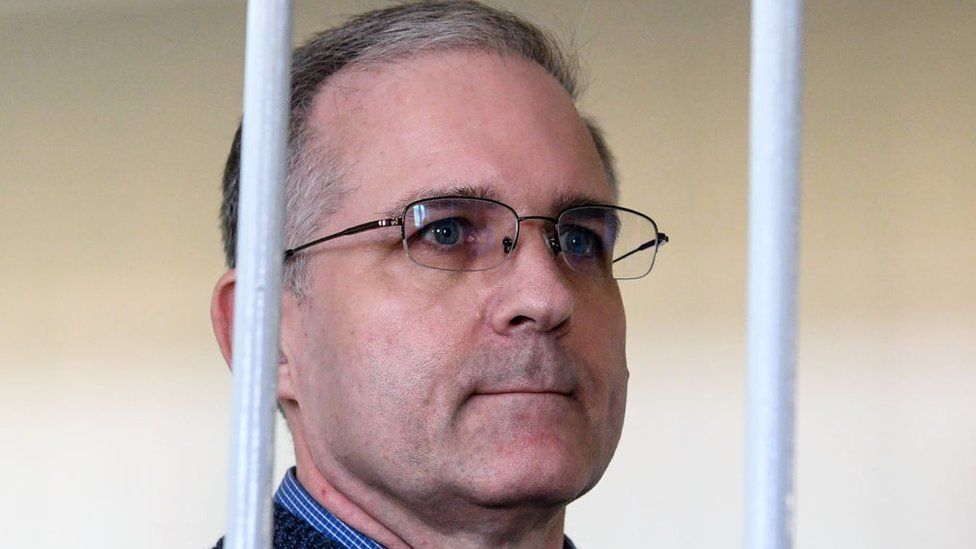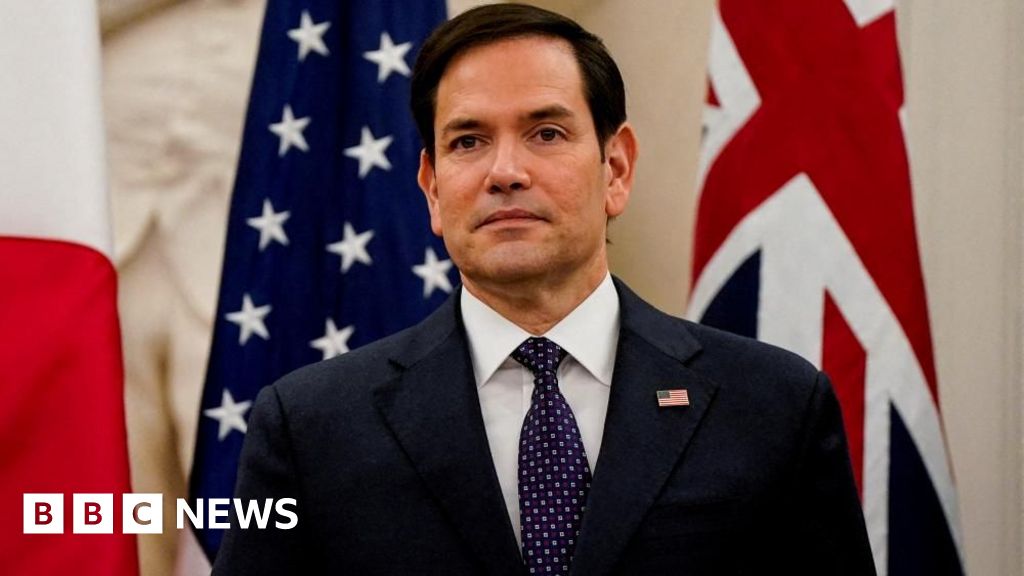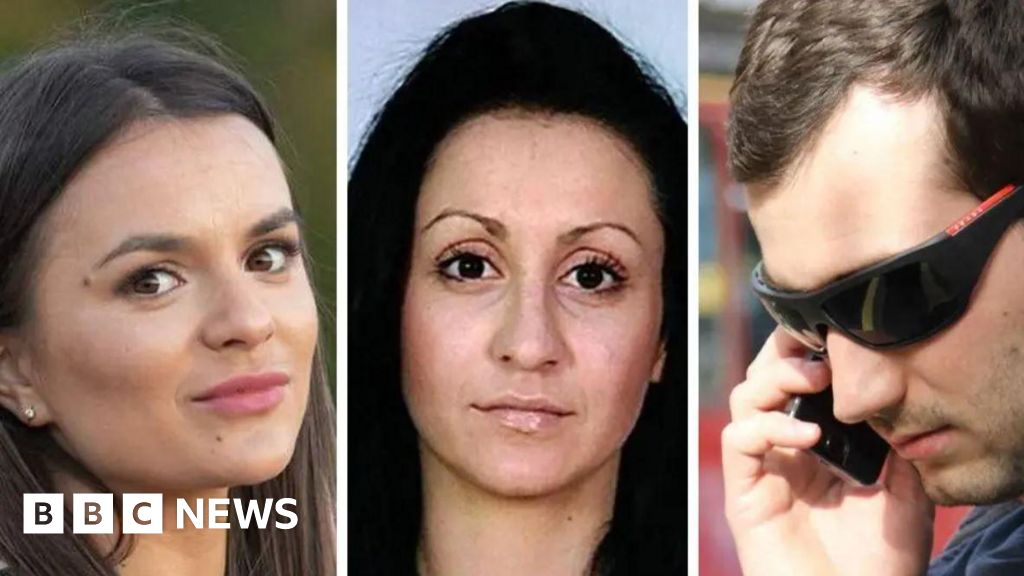ARTICLE AD BOX
 Image source, Getty Images
Image source, Getty Images
Paul Whelan has spent five years in Russian custody
By Sarah Rainsford
Eastern Europe correspondent
Five years ago, Paul Whelan travelled to Moscow on a two-week holiday that ended in a Russian labour camp. The American is about to spend another Christmas in custody, thousands of miles from home.
The US government says he's been wrongfully detained and accused of espionage.
But in a rare interview by phone from his remote prison, Paul Whelan told the BBC he feels "abandoned" by his own country, which has arranged two prisoner swaps with Russia in the last year.
He called the decision to leave him behind a "serious betrayal".
Hostage collection
Mr Whelan's comments came as the US journalist Evan Gershkovich prepared for his own first New Year behind bars on the same charge.
His newspaper, the Wall Street Journal, and his government are both clear that Russia's case against him is false. An accredited correspondent, he was arrested in March doing his job.
Another journalist, US-Russian citizen Alsu Kurmasheva, was detained in October after travelling to see family. She's facing up to 15 years in prison, on charges including spreading "fake news" about the Russian military.
The Kremlin seems to be collecting American hostages.
Paul Whelan has been locked up by far the longest. We've talked many times since, first in court and then from prison.
A US government spokesperson told us they have made "multiple proposals" to the Russians and are "constantly discussing" Mr Whelan's case with allies. "Not a week goes by without intensive activity," the statement read.
But in all the years we've spoken, I've never heard Mr Whelan so pessimistic or so frustrated.
Abandoned
"I know the US have all sorts of proposals, but it's not what the Russians want. So they go back and forth, like throwing spaghetti against the wall to see what sticks.
"The problem is, it's my life that's draining away while they do this. It's been five years!"
After his trial, Mr Whelan says Russia wanted to send him home in return for the convicted arms dealer, Viktor Bout. But Donald Trump was US president then, and "kept saying no."
Whelan told the BBC over the phone that he should have been home years ago
Two years later, Viktor Bout was swapped for the American basketball star, Brittney Griner, who'd pleaded guilty to possessing vape cannisters with cannabis oil.
Paul Whelan was left behind.
"It's extremely stressful knowing that I could have been home years ago," he told me. "It's extremely frustrating to know that they've made these mistakes. They've basically abandoned me here."
Mr Whelan also holds UK, Irish and Canadian passports, and all four countries' ambassadors have been visiting him.
But when I asked the UK Foreign Office about efforts to get him out, I was told it was "providing consular assistance to a British citizen".
That's the same statement it made five years ago.
Evan's story
The US State Department won't confirm the details of sensitive negotiations. But the US government spokesperson described Secretary Blinken as "personally committed" to securing Mr Whelan's release.
It said that Russia had refused "several significant offers" but that the US "will not cease these efforts" to bring its citizens home.
It's not only Paul Whelan who's depending on that.
When Evan Gershkovich was arrested in March, it was the first time a Western correspondent had been charged with espionage in Moscow since the Cold War.
"Evan is not a spy, he's a journalist. That goes without saying," Polina Ivanova says, a Moscow correspondent for the Financial Times and Evan's friend.
Evan Gershkovich, a journalist for the Wall Street Journal, has spent nearly a year behind bars in Russia
The two started out reporting from Moscow at the same time. Now he's locked up, and Polina, like most other Russia correspondents, works from abroad for safety.
She describes a "horrible" evening when Evan lost contact with his newspaper whilst out of Moscow on a story. He resurfaced as a prisoner, accused of espionage. "When that happens to a friend, the universe just collapses. It's a terrifying charge."
Polina and other friends spend hours each week sorting through letters of support sent from abroad. They then translate them into Russian so they can pass the censors at the Moscow prison where Evan is being held by the FSB.
They translate magazine articles and send novels, too. Polina has a little pile on her shelf in her Berlin flat that she's reading at the same time, so they can discuss them. She's trying to keep her friend's spirits up, as well as her own.
Polina has dedicated a lot of her time to campaigning for Evan Gershkovich's release
Before his arrest, Evan had reported on the last US-Russia prisoner exchange, of Brittney Griner for Viktor Bout. Before that, ex-US Marine Trevor Reed was swapped for a Russian drugs trafficker.
So the journalist knows how this works. But he'll also know the high price Russia demands for any deal.
And its terms are getting even tougher.
Paul Whelan told me Moscow now wants a convicted FSB hitman returned from Germany as part of any swap.
When Vadim Krasikov was put on trial in Berlin, the judge called the murder he had committed in a city centre park - in broad daylight - an act of "state terror". The killer was sentenced to life in prison.
If Moscow is serious, as we think, then the US has to draw Germany into its negotiations.
German politician Roderich Kiesewetter says Washington does have significant sway with Berlin, as Germany is "very dependent" on US intelligence - what he calls "hints and advice".
But Mr Kiesewetter, a member of the parliament's foreign affairs committee, is opposed to any deal.
"We cannot afford to give Russia a signal that they can commit crimes in other countries and then, after a diplomatic break of several years, get their murderers back," he told me at the Bundestag.
Roderich Kiesewetter says Germany is against a prisoner swap deal
Last week, Vladimir Putin stressed that any deal Russia did to return the Americans had to be "mutually acceptable". The US needed to make an "appropriate decision," he said, at pains to sound like the reasonable man he is not.
That might be a hint that negotiations could intensify.
"I have no idea what the Kremlin thinks I just know that my best friend is in jail, and he shouldn't be," Polina Ivanova told me. "He should be home and should be working."
Paul Whelan isn't getting excited, either.
He spends his days stitching work overalls and hats in a prison factory, and tells me there is black mould on his barracks' walls. On the day we spoke, it was -15C inside, with no heating.
He says his life has been "ruined" since his arrest. He's lost his freedom, his job, and his home, and he was recently assaulted by another inmate.
Image source, Reuters
Image caption,Whelan is being kept in a facility without heating and where temperatures are currently -15C
The US government says he's "not forgotten". But his worst fear is of another swap, that excludes him.
"I'm extremely concerned. With each case, my case is going to the back of the line. They've kind of just left me in the dust. And at this point, this juncture, it's very concerning."
It was Russia that put him in prison. But Paul Whelan says he needs the US to push harder, to get him home.
"All the promises made have been empty."

 1 year ago
71
1 year ago
71








 English (US) ·
English (US) ·